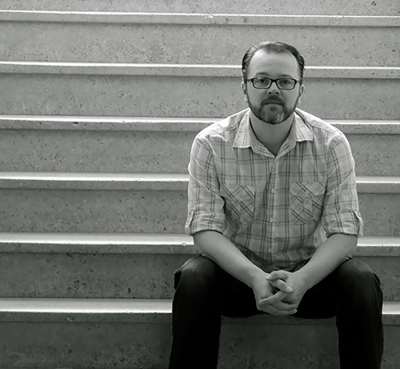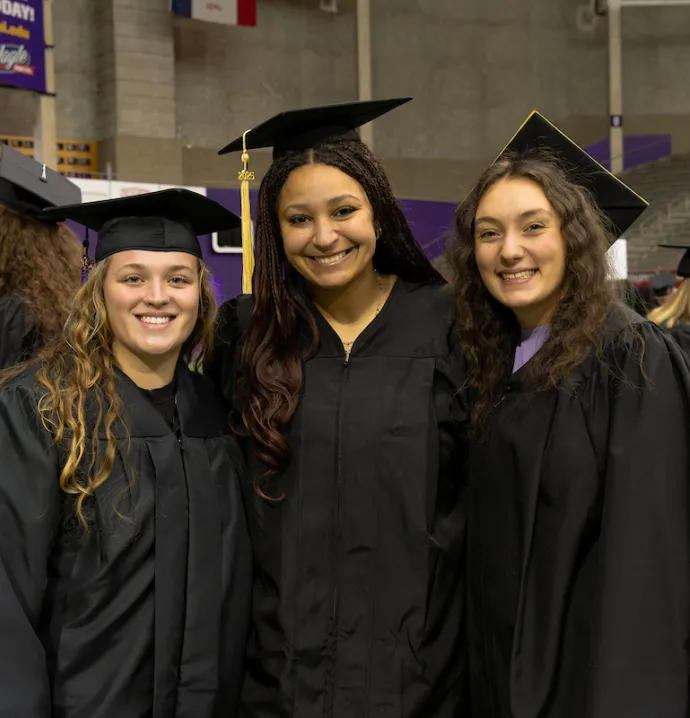5 Questions: Jeremy Schraffenberger discusses UNI’s new general education program
5 Questions: Jeremy Schraffenberger discusses UNI’s new general education program

Starting next semester, the University of Northern Iowa will offer a new general education program designed to align student learning outcomes with the top skills employers are seeking.
UNI Foundational Inquiry (UNIFI) is redefining the value of a general education program with its new 37-credit-hour program that will make completing general education requirements more efficient and flexible, thus creating a path to timely graduation.
The program will help students stay on track with their major and give them a future-ready foundation of employable skills, critical thinking abilities, and well-rounded credentials.
Here, UNIFI Curriculum Coordinator and Professor of English Jeremy Schraffenberger discusses how the new program will work, what it means for UNI, and how UNIFI will impact students’ future studies.
What is the UNI Foundational Inquiry (UNIFI) program and how does it differ from the Liberal Arts Core program?
UNIFI is the university’s new general education program that all students will be required to complete starting next semester. We’ve completely revised our program to reduce the number of required credits, giving students more freedom, choice and control over what classes they take to fulfill these requirements.
Our current program, the Liberal Arts Core, requires students to complete 45 credits. The UNIFI program requirement is 37 credits. Those credits cover 12 different learning outcomes, and they're clustered among eight different learning areas. There are also four additional courses required, where students can either take electives within the UNIFI program or pursue a certificate. So, in essence, the program boils down to 12 total classes with one lab attached to the scientific reasoning course that they would take.
What makes the UNIFI program unique compared to those of other universities?
I can’t speak for every other university and how their general education programs might work, but the thing that makes UNIFI truly unique and innovative is these certificates, or micro-credentials, that students can earn. Students can earn certificates at the same time they are completing their required UNIFI credits. Embedding micro-credentials into the general education experience is something I have not seen anywhere else.
I think another thing that makes out program unique, or at least different from our previous program, is the fact that it is outcome-based, so students can point to specific skills and the bases of knowledge that they have acquired as a result of their coursework, and those outcomes were developed based in part on what employers nationwide have said they are looking for and want in new employees.
Can you explain more about what the UNIFI certificates are and what they mean for students?
Students can earn UNIFI certificates while they are completing their general education requirements, and they will signal that this student has completed additional focused coursework on a certain topic or question or issue, and it's kind of like a bonus that students are earning at the same time they are fulfilling their general education credits.
So for instance, there's a UNIFI certificate called Sustainability, where students will take three courses in their general education program that will have embedded within it some treatment of sustainability issues and systems thinking. These are all introductory courses, so there are no prerequisites, and once the student has completed those courses, they have earned the certificate, which will appear on their transcript and is something they can point to as a micro-credential on their resume or put on their LinkedIn profile.
Currently, we have four certificates, but seven more will be added next year, and even more are in development. Those certificates are: Sustainability, which addresses how to promote human prosperity while protecting the planet. Creative Expression and Meaning, which focuses on different ways in which creating art is fundamental to the human experience; Developmental Considerations, which focuses on human developmental trends from infancy through adolescence; and Thrive!, which is about life skills and transitioning to becoming an adult and self-sufficient decision maker.
And what about transfer students? How will UNIFI affect students coming in as third-year transfers?
Well, I think the biggest impact will be for those transfers who are coming into UNI having already earned an AA or AS degree. In the past with our general education program, students coming into UNI with one of those degrees still had to fulfill certain course requirements that we have on campus. So the Capstone, for instance, was one of those classes that transfer students still had to take.
With the UNIFI program, students coming into the university with an AA or AS degree will no longer have to fulfill those course requirements. If they have the degree, they have completed their general education coursework and don’t have to worry about doing any more. A lot of people are already really excited about that, and I think it could also make it easier for students to choose to come here rather than go elsewhere.
And just as a side note, transferring students who have an AA or AS degree can still earn these certificates, too. Those classes are open to every student at every level, so if they want to take the coursework and earn those micro-credentials, they can.
What is the goal of the new UNIFI program, and how might it impact students?
Student success. That was always the end goal of our committee’s work and was the basis for every decision we made: to help students succeed, both in their chosen majors and beyond. We hope that once our students graduate, their experiences in UNIFI will serve as a good foundation for them as they go out into the world and start their professional lives. And, we think the flexibility UNIFI offers and the fact that it is outcomes-based, along with the possibility for certificates, are going to help set students up for success.
I think it’s also important to note that this might be a new program that we have created, but it’s not set in stone. We're going to be getting data and feedback and monitoring how things are going, and then we will make changes to improve the program over the coming years, including adding exciting new courses and new certificates.




